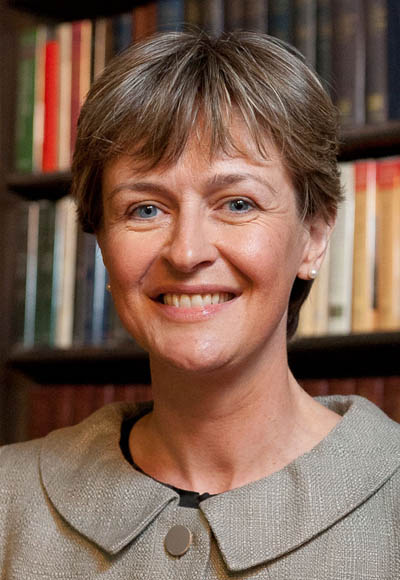
Follow the University of Arkansas on Twitter @uarkansas
FAYETTEVILLE, Ark. – Visiting Distinguished Professor Helen Jarvie, an environmental chemist at the Centre for Ecology and Hydrology in the United Kingdom, began an appointment in July as the first Fulbright Fellow from the U.K. to come to the University of Arkansas in the 63 years that the program has been in place.
Jarvie beat tough competition to win one of only five Fulbright All-Discipline Fellowships. The award is offered each year to outstanding U.K. professionals or academics, in any subject field, to undertake lecturing, research or a combination of the two at any accredited U.S. institution.
Jarvie’s Fulbright research at the university addresses a major international strategic need to protect water resources from excessive nutrients (nitrogen and phosphorus), which can cause nuisance algal growth and degradation in water quality.
“The University of Arkansas was the obvious choice of U.S. Institution for my Fulbright Fellowship, given the international reputation for research excellence in phosphorus cycling to promote sustainable water quality management,” Jarvie said.
 Visiting Distinguished Professor Helen Jarvie, the first Fulbright Fellow from the United Kingdom at the University of Arkansas, and Professor Andrew Sharpley, her colleague in the university's department of crop, soil, and environmental sciences, check an automatic water sampler within the University of Arkansas Division of Agriculture's Watershed Research and Education Center in Fayetteville. |
"My project will evaluate the remarkable self-cleansing capacity of streams and rivers in processing nutrients from agricultural and urban sources," Jarvie said. "Uptake and release of nutrients within watersheds and rivers can help to regulate the transport of nutrients and reduce ecological and water quality impacts downstream. Over the longer term, however, build-up of a nutrient legacy within watersheds can mean lengthy recovery times after the introduction of remedial measures to protect water quality, such as agricultural best management practices."
The work is of global importance for environmental agencies in developing scientifically sound tools for environmental policy decision-making and to ensure long-term sustainability of aquatic environments.
The U.S.-U.K. Fulbright Commission — a bilateral, transatlantic scholarship and fellowship program — is part of the Fulbright Program conceived by Sen. J. William Fulbright to promote recovery from World War II in Europe. Fulbright was a former president of the University of Arkansas.
Jarvie's Fulbright Fellowship is for six months, to be followed by another six months of an Organisation for Economic Cooperation and Development Fellowship to examine the impacts of phosphorus-based nutrient management on surface water quality.
Jarvie is collaborating with Professor Andrew Sharpley in the department of crop, soil and environmental sciences, as well as with biologists, geologists and engineers in other departments at the University of Arkansas and with the U.S. Geological Survey and Natural Resources Conservation Service.
"Helen brings expertise in novel, cutting edge analytical methods to our program," Sharpley said. "She will help us understand the effects of local land management practices on river water quality downstream and, ultimately, in the Gulf of Mexico."
Jarvie is lead author and Sharpley is co-author of a 2011 paper, "Quantifying Phosphorus Retention and Release in Rivers and Watersheds Using Extended End-Member Mixing Analysis (E-EMMA)," in the Journal of Environmental Quality, 40, pages 492-504.
Jarvie is a graduate of the University of Oxford, as was Fulbright. After receiving her doctoral degree in Fluvial Sedimentology at Reading University, she joined the U.K. Natural Environment Research Council's Centre for Ecology and Hydrology, where she is now a principal scientist in environmental chemistry.
Topics
Contacts
Helen Jarvie, visiting distinguished professor
Crop, Soil and Environmental Sciences
479-575-2354,
Andrew Sharpley, professor
Crop, Soil and Environmental Sciences
479-575-5721,
Howell Medders, coordinator of communications
Division of Agriculture
479-575-5402,